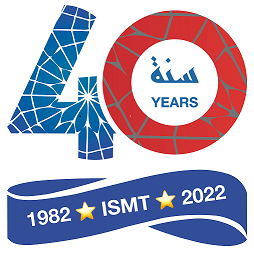The Tunis Higher Institute of Music was established in 1982. In the years since its creation, it has gained momentum and made progress in the educational, scientific and institutional domains. Since then, double courses that combine theoretical, methodological and applied approaches to music practice have been offered, enabling students to improve their learning and to understand the concomitance between Music and Knowledge. Studies in the Institute are spread over 3 cycles: the first cycle is the Bachelor’s degree, the second cycle is the Master’s degree and the third cycle is the PhD.
The Bachelor’s degree, also called the Fundamental Licence, provides two courses: “Music and Musicology” and “Music and Interpretation”. Music and Musicology course focus on developing research skills related to musical fields in order to improve students’ capability of creating new concepts and techniques as well as their teaching abilities, while Music and Interpretation course aims at strengthening musical performance for advanced professional musicians. Both courses lead to Master’s degree. However, the PhD cycle offers a single direction: a doctorate in “Music and Musicology”, which aims at enhancing research skills by combining musical components to musicology as a discipline that examines the mysteries of musical expressions in its various repertoires and styles, and proposing cultural development policies according to the local demand for labour.
The Institute offers internship opportunities throughout the academic year. These internships are supervised and offer structured learning experiences in a professional setting that enables students to improve their methodological and technical skills. In the same context, the Institute also organizes study visits to Tunisian archaeological sites and museums to explore Tunisian historical monuments and especially those related to Music history, namely theatres, musical instruments, sculptures, drawings and iconographic sources, etc., Indeed masterclasses and workshops are regularly planned at the Tunis Higher Institute of Music that offer the opportunity to meet and share experiences with international musicians.
Concerning Research, the Institute hosts a Research laboratory for Culture, New Technologies and Development, under the supervision of the General Direction of Scientific Research and Arts and Culture PhD School. This laboratory provides interdisciplinary insight into musicological research that can lead to artistic, social and economic development.
In future, the Institute is planning the establishment of an Academy of Arts in Lac 1 area, Tunis. This project tend to meet modern music education requirements and to attract a greater number of students.
On the celebration of its forty years of existence, the Institute is also organizing for launching a local radio in its current address – 20 avenue de Paris, Tunis – This radio will broadcast, on the Web, programs in relation with the Institute’s activities. This media space will benefit from the necessary technical and logistical equipment to guarantee its own functioning, as well as the permanent assistance of a professional team made up of its teachers, technicians and students.
The Institute is also proud of its unique specialized library in Tunisia. The library is open to students, teachers, researchers and curious general public interested in music and musicological knowledge. There one can find books, studies, periodicals, magazines and teaching programs etc. dating back to the period preceding the creation of the Institute. This library is mainly specialized in music, musicology and the arts. In 2021, a new library was created for the laboratory, which has books and studies published since its creation in 2005 by Prof. Mohamed Zinelabidine and during the years that followed. These publications are related to scientific events (conferences, symposiums and forums) organized in collaboration with research centres, associations and local and international university institutions.
The Institute has approximately ninety teaching staff: (03) Higher Education professors, (05) lecturers, (01) authorized lecturer-assistant, (26) lecturer-assistants, (22) assistants, (16) contract teachers and (17) part-time teachers, in addition to the administrative staff (32) who work together to ensure the optimal training of approximately four hundred students each year and support them throughout their academic careers.
In conclusion, I would like to thank all those who have contributed to the prosperity of this great university edifice, whether through management, training, scientific research, musical production, interpretation, composition, arrangement or orchestration. We will always be grateful to this great institution which has welcomed and supported us throughout our academic career and has contributed to our professional artistic and pedagogical-scientific achievements.
Since its creation, several administrative, scientific and artistic personalities headed the Institute. Each of them, in turn, left his mark. We also count among them those who led the Institute for a short period of time to fill a vacant position. On this historical occasion, we can only pay tribute to them by citing their names and the consecutive periods of their leadership: Mr. Mahmoud Guettat (1982-1986/1991-1997) the founding father, Mr. Ali Larbi ( 1987-1988), Mr. Zoubaier Lasram (1988-1990), the late Mr. Mustapha Aloulou (1997-2005), Mr. Mohamed Saif Allah Ben Abderrazak (2009-2014), Mr. Mohamed Zinelabidine (2005-2008, 2014- 2016) and the writer of these few lines, Samir Becha who is completing his second and final term of office (2017-2020, 2021-2023).
As part of the celebration of forty years of the Tunis Higher Institute of Music, we take a critical and reflexive look at the past and the current situation before passing the buck to the future generation so that they can continue the march with dedication and sincerity, realize a promising future rich in productivity, creativity and reflections, and to prosper in symbiosis with modern educational policies, history, reality, life, the aspirations of individuals and their aesthetic and human requirements.
Tunis 01 october, 2022
Samir Becha, Director.


République Tunisienne
Ministère de l'Enseignement Supérieur
et de la Recherche Scientifique
Université de Tunis